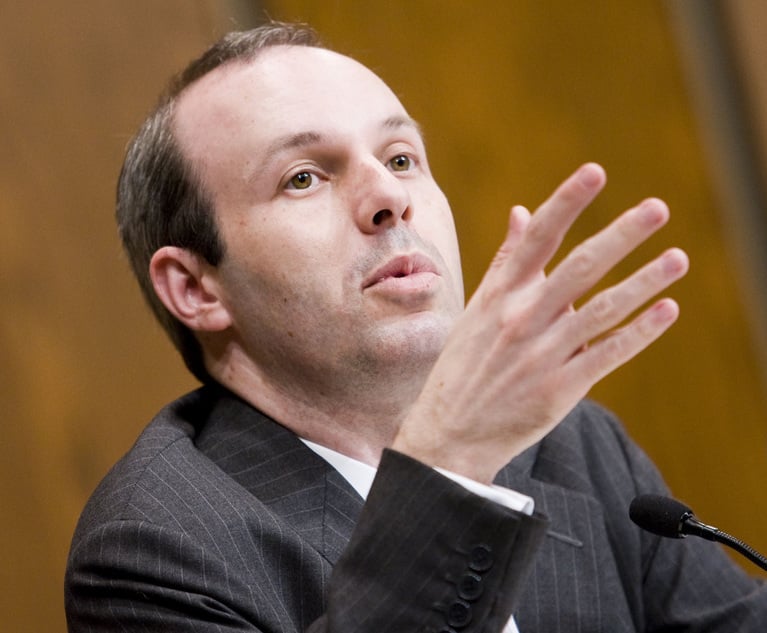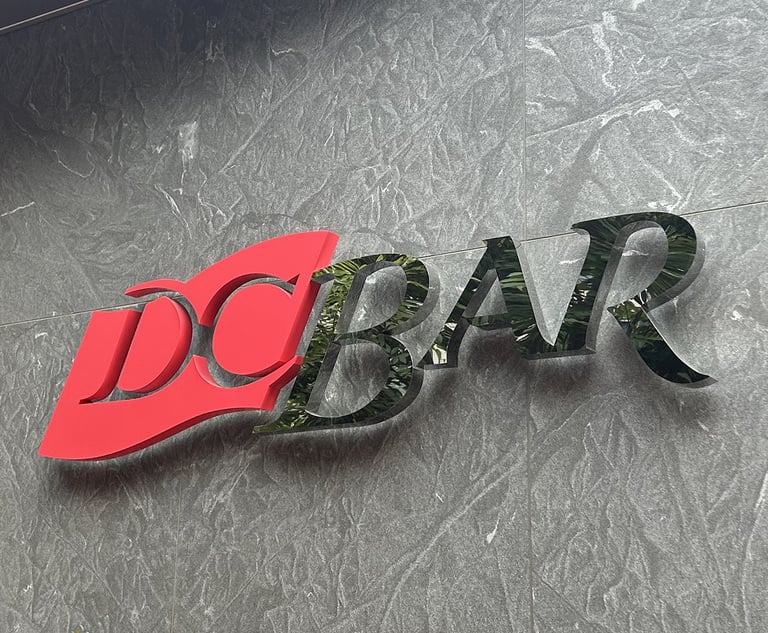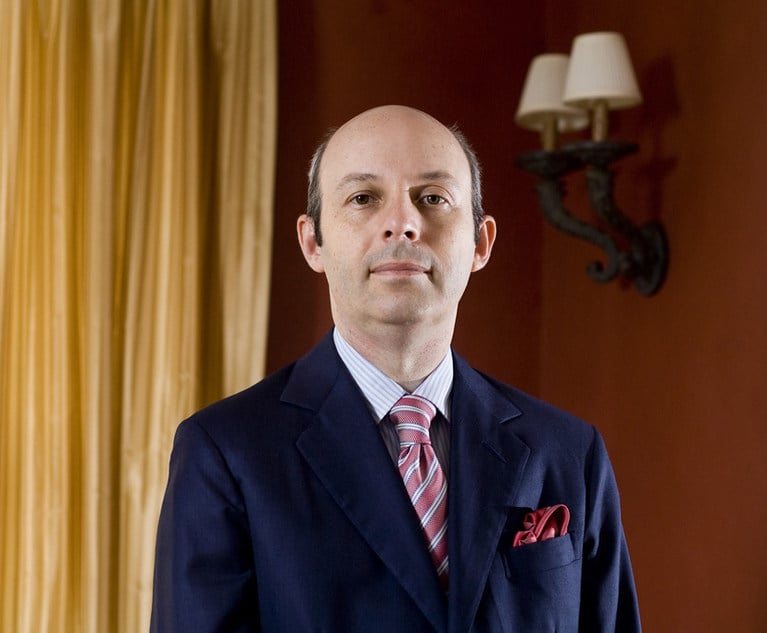 22nd Judicial Circuit Judge Michael Noble, left, and Kirkland & Ellis partner James Hurst, right. Courtesy photos
22nd Judicial Circuit Judge Michael Noble, left, and Kirkland & Ellis partner James Hurst, right. Courtesy photos'Grave Matter of Serious Consequences': Why a Missouri Judge Sanctioned a Top Kirkland & Ellis Attorney
"I was acting in absolute good faith" Kirkland & Ellis partner Jim Hurst told 22nd Judicial Circuit Judge Michael Noble hours before the court entered an Oct. 24 sanctions order in an infant formula trial, according to a transcript. "I was nowhere near intentionally violating your orders."
November 14, 2024 at 05:01 PM
10 minute read
What You Need to Know
- 'I think he needs to go back to Chicago,' St. Louis plaintiffs' attorney Timothy Cronin told the judge about Hurst.
- The sanctions ordered followed weeks of an unusually cantankerous trial, with numerous sidebars and objections and at least four mistrial motions by Abbott.
- Two prior juries, in Illinois and Missouri, had come back with verdicts of $60 million against Mead Johnson and $495 million against Abbott.
Defense attorney Jim Hurst was in the middle of questioning an expert witness when plaintiffs’ lawyer Timothy Cronin called for a sidebar—one of many during a high-profile trial in St. Louis over infant formula.
This time, however, he asked the judge to impose sanctions against Hurst, a Kirkland & Ellis partner in the Am Law 1 firm's Chicago office, who represented defendant Abbott Laboratories Inc.
NOT FOR REPRINT
© 2025 ALM Global, LLC, All Rights Reserved. Request academic re-use from www.copyright.com. All other uses, submit a request to [email protected]. For more information visit Asset & Logo Licensing.
You Might Like
View All
22-Count Indictment Is Just the Start of SCOTUSBlog Atty's Legal Problems, Experts Say
5 minute read
DC Bar’s Proposed Anti-Discrimination, Harassment Conduct Rule Sees More Pushback

SCOTUSblog Co-Founder Tom Goldstein Misused Law Firm Funds, According to Federal Indictment
2 minute read
‘Facebook’s Descent Into Toxic Masculinity’ Prompts Stanford Professor to Drop Meta as Client
6 minute readTrending Stories
- 1Whether to Choose State or Federal Court in a Case Involving a Franchise?
- 2Am Law 200 Firms Announce Wave of D.C. Hires in White-Collar, Antitrust, Litigation Practices
- 3K&L Gates Files String of Suits Against Electronics Manufacturer's Competitors, Brightness Misrepresentations
- 4'Better of the Split': District Judge Weighs Circuit Divide in Considering Who Pays Decades-Old Medical Bill
- 5Which Georgia Courts Are Closed Today?—Here's a List
Who Got The Work
J. Brugh Lower of Gibbons has entered an appearance for industrial equipment supplier Devco Corporation in a pending trademark infringement lawsuit. The suit, accusing the defendant of selling knock-off Graco products, was filed Dec. 18 in New Jersey District Court by Rivkin Radler on behalf of Graco Inc. and Graco Minnesota. The case, assigned to U.S. District Judge Zahid N. Quraishi, is 3:24-cv-11294, Graco Inc. et al v. Devco Corporation.
Who Got The Work
Rebecca Maller-Stein and Kent A. Yalowitz of Arnold & Porter Kaye Scholer have entered their appearances for Hanaco Venture Capital and its executives, Lior Prosor and David Frankel, in a pending securities lawsuit. The action, filed on Dec. 24 in New York Southern District Court by Zell, Aron & Co. on behalf of Goldeneye Advisors, accuses the defendants of negligently and fraudulently managing the plaintiff's $1 million investment. The case, assigned to U.S. District Judge Vernon S. Broderick, is 1:24-cv-09918, Goldeneye Advisors, LLC v. Hanaco Venture Capital, Ltd. et al.
Who Got The Work
Attorneys from A&O Shearman has stepped in as defense counsel for Toronto-Dominion Bank and other defendants in a pending securities class action. The suit, filed Dec. 11 in New York Southern District Court by Bleichmar Fonti & Auld, accuses the defendants of concealing the bank's 'pervasive' deficiencies in regards to its compliance with the Bank Secrecy Act and the quality of its anti-money laundering controls. The case, assigned to U.S. District Judge Arun Subramanian, is 1:24-cv-09445, Gonzalez v. The Toronto-Dominion Bank et al.
Who Got The Work
Crown Castle International, a Pennsylvania company providing shared communications infrastructure, has turned to Luke D. Wolf of Gordon Rees Scully Mansukhani to fend off a pending breach-of-contract lawsuit. The court action, filed Nov. 25 in Michigan Eastern District Court by Hooper Hathaway PC on behalf of The Town Residences LLC, accuses Crown Castle of failing to transfer approximately $30,000 in utility payments from T-Mobile in breach of a roof-top lease and assignment agreement. The case, assigned to U.S. District Judge Susan K. Declercq, is 2:24-cv-13131, The Town Residences LLC v. T-Mobile US, Inc. et al.
Who Got The Work
Wilfred P. Coronato and Daniel M. Schwartz of McCarter & English have stepped in as defense counsel to Electrolux Home Products Inc. in a pending product liability lawsuit. The court action, filed Nov. 26 in New York Eastern District Court by Poulos Lopiccolo PC and Nagel Rice LLP on behalf of David Stern, alleges that the defendant's refrigerators’ drawers and shelving repeatedly break and fall apart within months after purchase. The case, assigned to U.S. District Judge Joan M. Azrack, is 2:24-cv-08204, Stern v. Electrolux Home Products, Inc.
Featured Firms
Law Offices of Gary Martin Hays & Associates, P.C.
(470) 294-1674
Law Offices of Mark E. Salomone
(857) 444-6468
Smith & Hassler
(713) 739-1250








